41 commas after introductory words
Commas (Six Basic Uses) - Okanagan 2. USE A COMMA AFTER AN INTRODUCTORY CLAUSE OR PHRASE. Rule: Use a comma after an introductory clause or phrase. A comma tells readers that the introductory clause or phrase has come to a close and that the main part of the sentence is about to begin. 1. When Evan was ready to iron, his cat tripped on the cord. 2. Conjunction (grammar) - Wikipedia WebIn grammar, a conjunction (abbreviated CONJ or CNJ) is a part of speech that connects words, phrases, or clauses that are called the conjuncts of the conjunctions. That definition may overlap with that of other parts of speech and so what constitutes a "conjunction" must be defined for each language.In English, a given word may have several senses and be …
Using Commas in a Series: Rules & Examples - Study.com Web21. Dez. 2021 · Commas are used to separate three or more words, phrases, or clauses in a series. This means that when three or more items are being listed in a sentence, a comma goes between each item in the ...

Commas after introductory words
Writing for Success – Open Textbook - University of Minnesota Oct 27, 2015 · Book Description: Writing for Success is a text that provides instruction in steps, builds writing, reading, and critical thinking, and combines comprehensive grammar review with an introduction to paragraph writing and composition. Commas After Introductions - Purdue OWL® - Purdue University WebIntroductory elements often require a comma, but not always. Use a comma in the following cases: After an introductory clause. After a long introductory prepositional phrase or more than one introductory prepositional phrase. After introductory verbal phrases, some appositive phrases, or absolute phrases. If there is a distinct pause. To … Student | W. W. Norton & Company CONNECT WITH US. WHO WE ARE; CAREERS; HELP; ACCESSIBILITY; PRIVACY POLICY; Copyright © W. W. Norton & Company, Inc. 2022
Commas after introductory words. Commas: Use and Examples - Grammar Monster WebCommas are used after the 'setting the scene for a sentence,' after a transitional phrase (e.g., 'however'), after an interjection (e.g., 'Yes'), before a conjunction (e.g., 'and,' 'but'), for parentheses (like brackets), after a long subject, in lists, and with the vocative case. This lesson explains the correct use of commas and has examples of commas used in … How to Use English Punctuation Correctly (with Pictures Web17. Dez. 2022 · There are exceptions to the hyphen-dash rule. In making compound words, when one of the words is itself composed of two words, use an en dash ( – ) rather than a hyphen, as in, "He took the Paris–New York route." En dashes are also used between numbers, as in page numbers or years, to denote a range. ("A discussion on personal … Commas: Quick Rules - Purdue OWL® - Purdue University WebUse commas after introductory a) clauses, b) phrases, or c) words that come before the main clause. Use a pair of commas in the middle of a sentence to set off clauses, phrases, and words that are not essential to the meaning of the sentence. Use one comma before to indicate the beginning of the pause and one at the end to indicate the end of ... Quotations Within Quotations - The Blue Book of Grammar and ... Jan 26, 2007 · Your examples all start with the introductory phrase, but for sentences that reverse the order, as is often seen in dialog, I assume that the rules would still hold, resulting in something like this: “He left after saying, ‘I will go where I must,'” the young man offered.
Adverb Clauses: Different Types Explained | YourDictionary WebWhat is an adverb clause, and how are you meant to understand it? Find out what it is and understand the different types with this simple guide. Taylor & Francis Journals Standard Reference Style Guide: … Webcitation is situated after a shorter quoted passage outside the quotation marks. In the citation, a comma is inserted after the publication year, followed by “p.” and the page number, if the passage occurs on a single page of the original text, or by “pp.” and the page numbers, if the passage or passages fall on multiple pages of Comma Worksheets | Printable Punctuation Activities WebCommas and Introductory Elements: Words. Here’s a worksheet on commas with introductory words. Grade Levels: 4th and 5th Grade, Grades K-12 CCSS Code(s): L.5.2.B Commas and Quotation Marks: Inside or Outside? This worksheet helps your youngster understand where commas go when working with quotation marks. Grade … Quotation mark - Wikipedia WebQuotation marks (also known as quotes, quote marks, speech marks, inverted commas, or talking marks) are punctuation marks used in pairs in various writing systems to set off direct speech, a quotation, or a phrase.The pair consists of an opening quotation mark and a closing quotation mark, which may or may not be the same character. ...
Student | W. W. Norton & Company CONNECT WITH US. WHO WE ARE; CAREERS; HELP; ACCESSIBILITY; PRIVACY POLICY; Copyright © W. W. Norton & Company, Inc. 2022 Commas After Introductions - Purdue OWL® - Purdue University WebIntroductory elements often require a comma, but not always. Use a comma in the following cases: After an introductory clause. After a long introductory prepositional phrase or more than one introductory prepositional phrase. After introductory verbal phrases, some appositive phrases, or absolute phrases. If there is a distinct pause. To … Writing for Success – Open Textbook - University of Minnesota Oct 27, 2015 · Book Description: Writing for Success is a text that provides instruction in steps, builds writing, reading, and critical thinking, and combines comprehensive grammar review with an introduction to paragraph writing and composition.


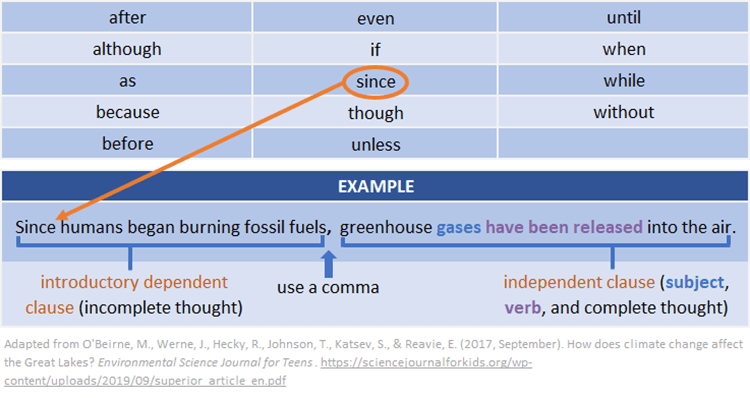
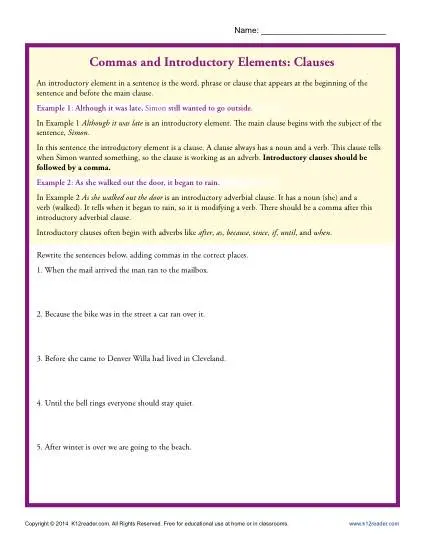

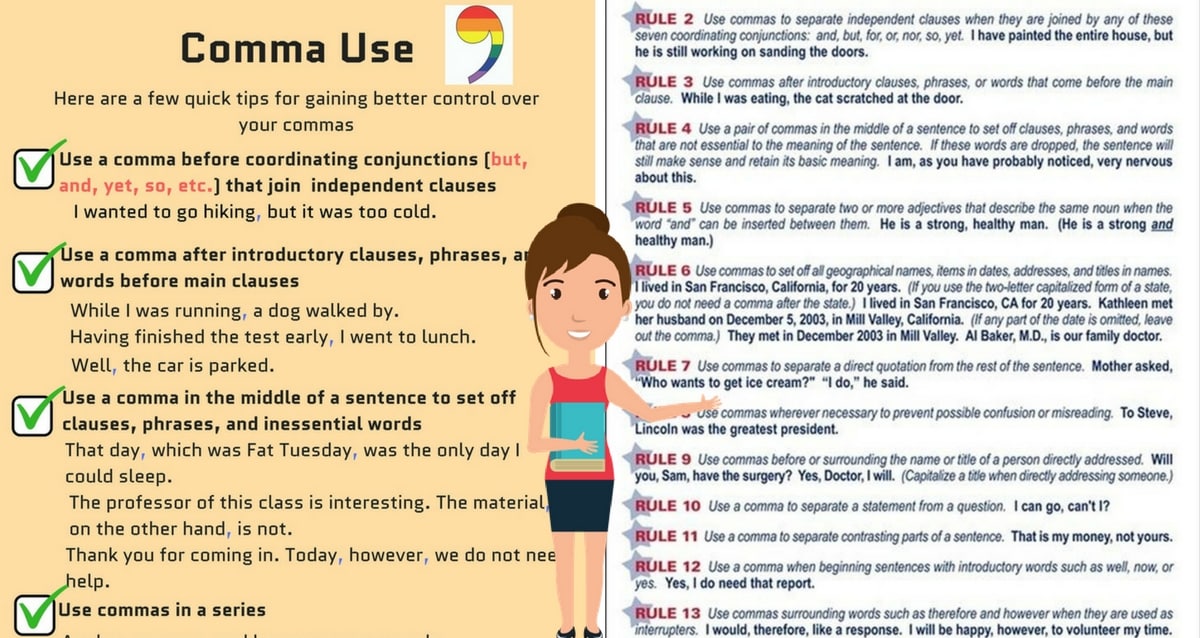
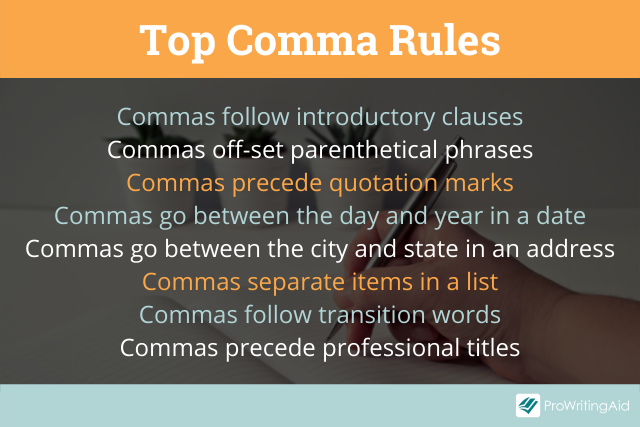










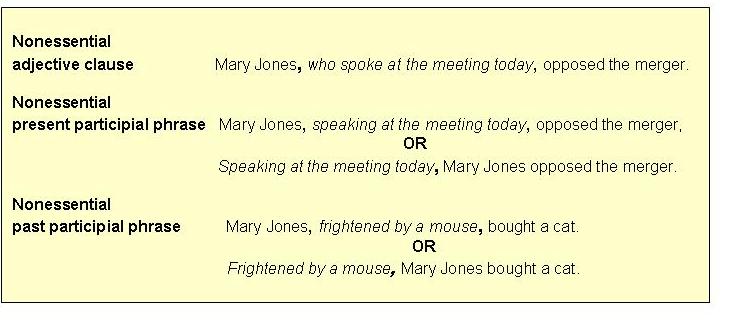
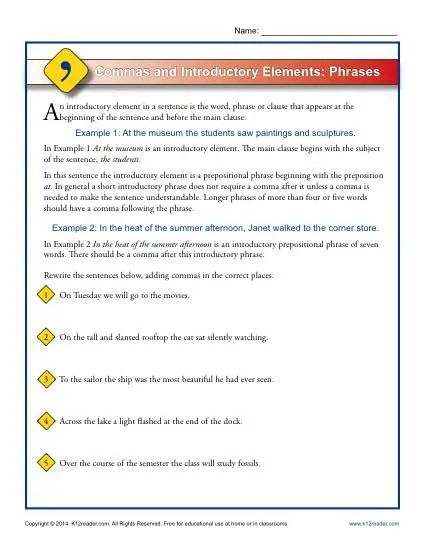

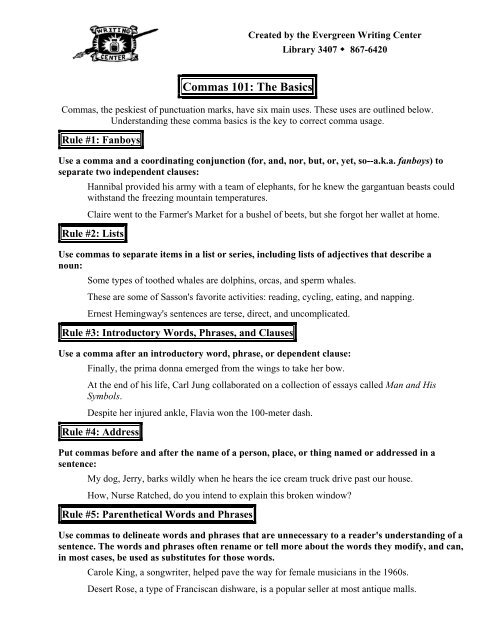

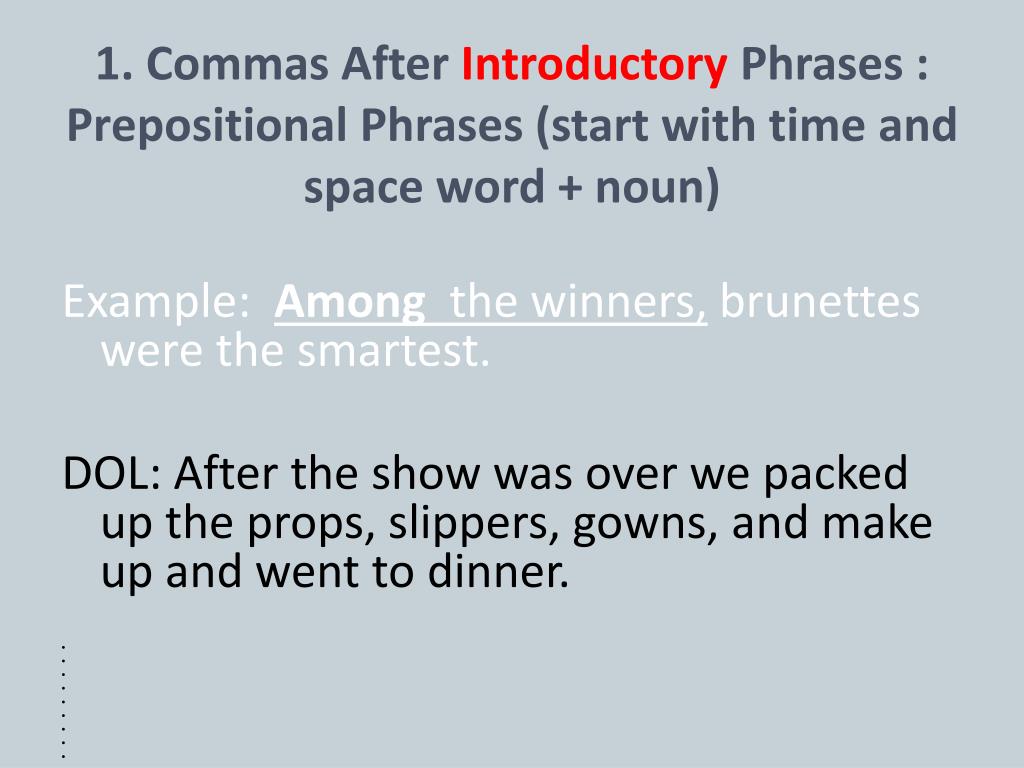


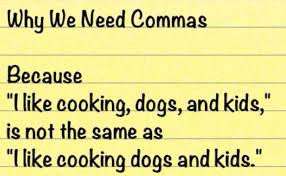





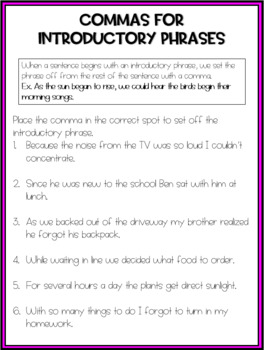


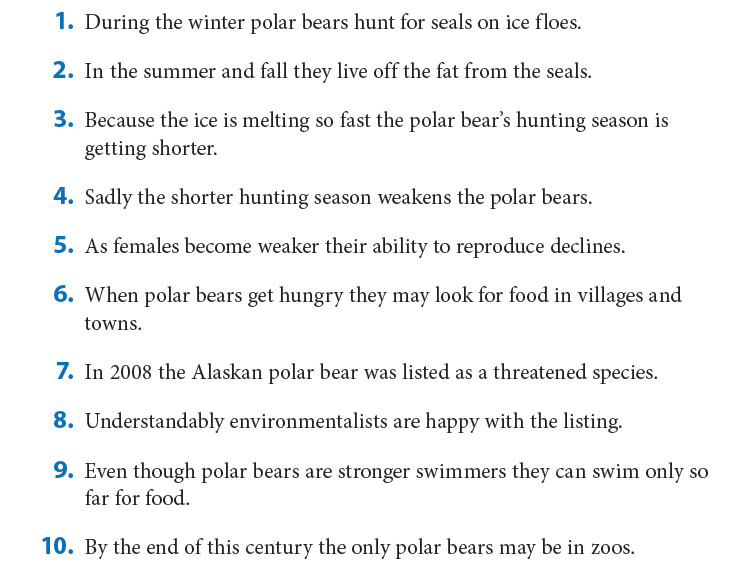
0 Response to "41 commas after introductory words"
Post a Comment